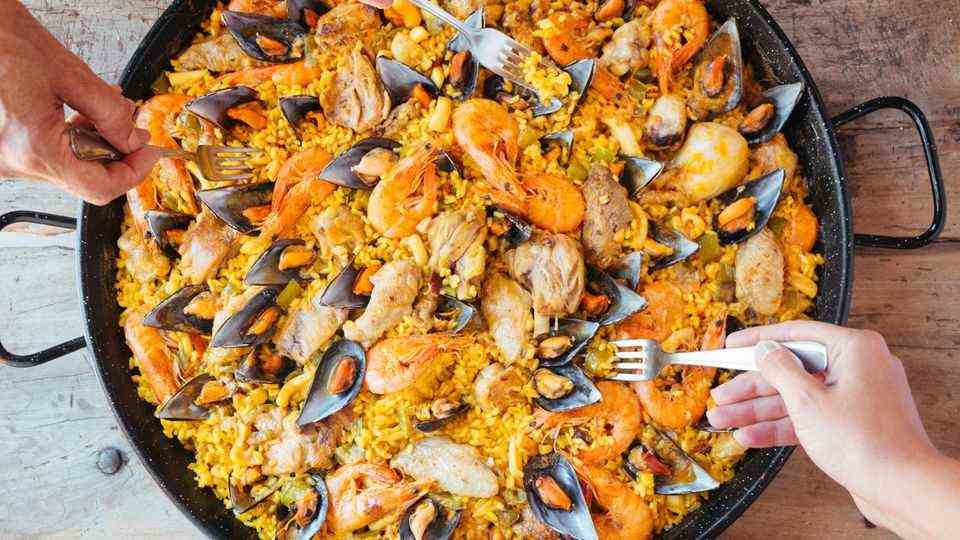Swiss start-up “Planted”
The billion dollar business with meat substitutes: Why vegan chicken is so hyped right now
This chicken skewer is made from plants
© Planted
The start-up for meat substitute “Planted” has already raised 40 million euros in two financing rounds. Why the Zurich company exactly meets the zeitgeist.
Vegan products have never been as en vogue as they are today: the vegan burger Beyond Meat is worth around eight billion euros on the stock exchange, the sausage manufacturer Rügenwalder Mühle now makes 50 percent of sales with its vegetarian products and now “Planted” is up with its meat substitute the advance. A startup that is only two years old and has already collected around 40 million euros from its investors.
Where does this boom come from? The demand is there first. A study by the strategy consultancy Boston Consulting Group (BCG) shows that by 2035 around one in ten meals worldwide will consist of vegetable proteins instead of animal foods. Worldwide sales of meat substitute products currently amount to 33 billion euros. The experts expect that sales could grow to around 244 billion euros by 2035, which would be an increase of more than 700 percent.

Lukas Böni, Pascal Bieri, Eric Stirnemann and Christoph Jenny (from left to right) rely on vegan chicken and pork with their start-up “Planted”.
© Planted
No additives, own research
The products of “Planted” consist principally of nothing other than protein flour, water and oil. The company uses yellow peas for the artificial chicken and sunflowers, oats and yellow peas for the pork. Then nothing. No additives, no preservatives. “That was really important to us,” says co-founder Chris Jenny. “We want to bring clean products to the market to make a contribution to the environment and to eat better.” Something that also convinced the investors.
Another plus point: more than 40 of the 150 employees work in the in-house research unit to continuously optimize the product. The products “chicken”, “pulled” or “kebab” are offered to customers in the online shop and receive direct feedback. The shop is, so to speak, the test laboratory, every criticism is taken seriously and passed on to the research laboratory. The company can produce half a ton per hour, which is to be expanded to 1.5 tons next year.
They do not reveal how much the founders want to achieve with it. 400 grams of “chicken”, “pulled” or “kebab” cost 8.99 euros. “The company is not yet profitable,” says Jenny. This is because they don’t want to take too high margins and invest in research, they want to make a difference and change the world with their products.
Tim Raue relies on meat made from plants
The products are now also available from Edeka in Germany, Switzerland and Austria in selected retail outlets. The meat from plants is also conquering star cuisine: Tim Raue, who has been awarded two Michelin stars, has now firmly anchored two dishes with the substitute products in his vegan menu: a vegan Peking duck salad, which Raue prepared with “pulled” and ” Chicken “with Jerusalem artichoke, hazelnut and truffle, in which the” chicken “product from” Planted “plays the main role.
“There are around five percent of people with a culinary education who understand how to eat something vegan because it is vegan. The rest of them need a substitute product that is similar to sausage or schnitzel. At the same time, they want to feel good. And that is also completely legitimate, “said Raue. The substitute products from “Planted” convinced him because they do not contain any additives or preservatives.
Good companion to a low-meat diet
How will “Planted” continue? “Our next big thing should be one-piece substitute products. For example, a kind of chicken breast. Our schnitzel starts with peas, oats and sunflower protein,” says Jenny. In terms of taste, the products are rather bland, so the preparation and seasoning are very important. Non-meat eaters are enthusiastic about the structure and consistency, so you have something to chew on.
Nevertheless: from a nutritional point of view, the substitute products are “completely irrelevant,” says Thomas Vilgis, nutritional physicist and professor at the Max Planck Institute. “To make vegan sausages and vegan burgers, you need high tech. The products are therefore highly processed.” For nutrition researcher Hanni Rützler, the meat-free products are a good companion to a low-meat diet. They will probably not stay on the market in the long term: “I suspect that this is more of a transitional product because we lack the imagination of what we can eat and we like it when we omit the meat,” says Rützler. “But the meatless burger will not replace meat. I rather believe that we will learn to get by with less meat and show it more appreciation.”



